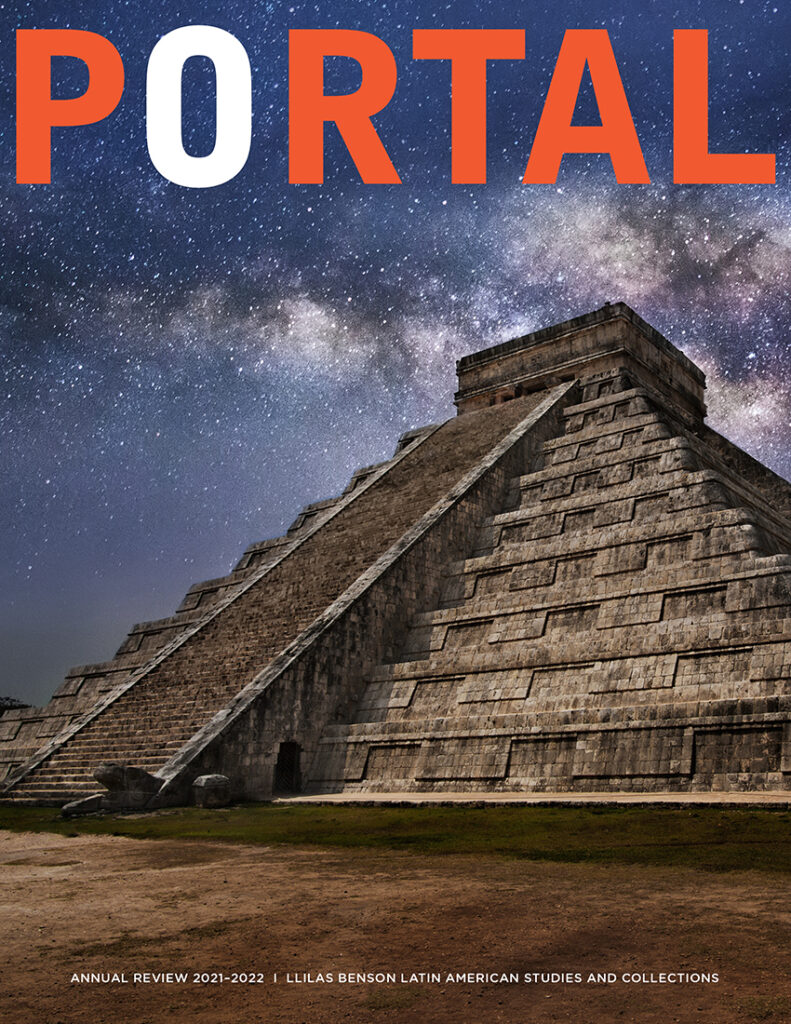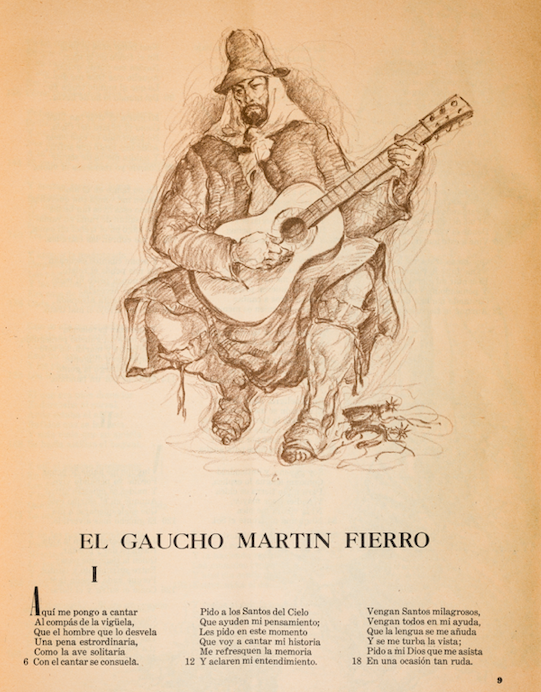
IT IS A GREAT PLEASURE to welcome you to Portal, a window to Latin American Studies and Collections at UT Austin. We want to provide our readers with a forum for inspirational discussions on the interfaces of knowledge production and Latin America’s social reality. At the heart of Portal lies our desire to tell Latin America’s untold stories, reigniting the past on behalf of the present. Portal brings faculty, archivists, and students together to conceive multiple spatio-temporal constellations in the study of Latin America. With this issue, we offer several routes to navigate these constellations. Join Rodrigo Salido Moulinié and his mentor Mauricio Tenorio in their journey across a geography of texts that constitutes Mexico City’s deep history; read Karl Schmitt’s recollections of his life as a Latin Americanist for the past eight decades; learn about the history and significance of street protest in Brazil with Fernando Lara, as he ponders an upcoming contested presidential election. Think of grassroots forms of collective action as you engage with Ana Carolina Assumpção’s inquiry into the relentless efforts of Afro-Brazilian women in Rio de Janeiro to defy the pernicious effects of Covid and other crises.

Envisioning ways in which time and space interact to provide for different human experiences is the doorway to reading Nohely Guzmán Narváez’s defense of Amazonian Indigenous women’s embodied conceptions of geography, as well as Cindia Arango López’s call for environmental justice in Colombia through a study of hydroelectric projects.
Portal invites you to think of history “as a time filled by the presence of the now,” in the words of philosopher Waler Benjamin. It is in this sense that we invite you to read Haley Schroer’s revisionist study of sumptuary laws in colonial Mexico. Behind these laws, Schroer discovers a narrative of exclusion related to gendered and racialized identities.
In early 2022, LLILAS Benson lost a friend, colleague, and beloved member of the UT Latin Americanist community. Professor of Linguistics Nora England was a pioneer in the field of descriptive and documentary linguistics and collaborated closely with LLILAS Benson as the director of the Center for Indigenous Languages of Latin America. Her extraordinary life is the topic of an article by Portal editor Susanna Sharpe.

Because the images in this magazine are often as important as the words, we invite you to pause and enjoy exhibition highlights related to Argentina’s foremost foundational poem, El gaucho Martín Fierro by José Hernández. The Benson Latin American Collection holds over 380 copies of the book and its sequel, including numerous versions in translation. Like all foundational fictions, Martín Fierro has triggered an infinite number of interpretations, from lettered ruminations to popular narratives; it has been appropriated for political aims by all sorts of ideologies. Indeed, the story of a law-abiding gaucho wronged by state authorities has been taken as a powerful allegory of Argentina’s national origins.
Finally, we are pleased to include brief interviews with two new faculty members, Assistant Professors Mallory Matsumoto (Religious Studies) and Amy E. Thompson (Anthropology), who joined the campus community in fall 2021 as part of the Maya cluster of hires. All four members of the Maya cluster bring distinguished interdisciplinary approaches to their work. It is exciting to think of the many ways in which their students and colleagues will benefit from their presence.
Just as we at LLILAS Benson value the diversity of disciplines, collections, people, and ideas we encounter in our work, we are aware that each reader represents a unique perspective. It is our hope that each of you finds something inspiring, moving, engaging in the pages that follow. Please let us know if you do!
Nuestros afectuosos saludos,
Adela Pineda Franco
Director, Teresa Lozano Long Institute of Latin American Studies
Melissa Guy
Director, Nettie Lee Benson Latin American Collection
